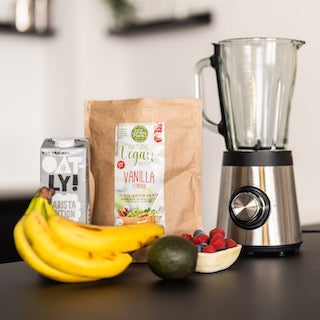Stress is the name for a wide range of tensions we experience in life. We live in a busy world and there are stimuli everywhere and we notice it in our health. Stress does more to your body that you would initially think. In this article, we take a closer look at how stress affects the body and give 5 tips for less stress.
Hormones
The feeling of stress is caused by different hormones. These include adrenaline, norepinephrine, CTH, ACTH and cortisol. These are all hormones that have a useful function in your body, but when stressed, too much of them are often produced, over too long a period of time and this can eventually lead to nasty complications! Both the stress itself and the stress hormones bring different symptoms and characteristics (stress symptoms). Herewith 5 symptoms & consequences of stress.
Fatigue
Fatigue is one of the most common complaints in people who experience a lot of stress. You go on and on and don't listen to your body enough. The body no longer comes to rest resulting in severe fatigue. Your limbs weigh like lead and you can hardly bring yourself to do anything. It requires a great effort of muscle and willpower to perform daily activities.
Headache
Do you increasingly walk around with a pounding head. Do you wake up in the morning with a headache even though you really just slept all night and didn't drink heavily the night before? Then a small alarm bell should be ringing. Because structural headaches may indicate stress. Stress is a major factor in the development of headaches. This is also sometimes called tension headaches.
Heart palpitations
Do you regularly suffer from palpitations? Then be alert because this is a major stress symptom. In stressful situations, your heart beats faster to quickly supply your muscles with oxygenated blood, resulting in an increase in your heart rate. This is not so bad for a while but if the stress persists, your heart becomes heavily stressed and this results in high blood pressure, palpitations or irregular heartbeat. This is obviously not pleasant and can be quite frightening which then causes some people to have anxiety or panic attacks.
Insomnia
Sleep deprivation is very common in people with too much stress. They try to sleep, but the worrying takes over. When you get little sleep, the symptoms will only worsen. A good night's sleep when stressed is incredibly important. Make sure you get as few stimuli as possible before you go to sleep. Slowly dim the lights, stop watching TV and stop using your phone. Put on some relaxing music and prepare your body for a peaceful night.
Weight gain
There is a good chance that stress will make you eat more. Unfortunately, you are more likely to choose unhealthy foods that are high in sugars and carbohydrates. You do this to keep yourself going and avoid getting tired. Eating sugary foods produces the happiness hormone endorphins in your brain. When you get a craving for sugar, try to choose natural sugars such as fruit, for example.
5 Tips for less stress
- Hit the gym! By being active you give your body an outlet and you can clear your mind. Exercise gives you more energy and reduces stress. So get those sneakers on and go.
- Smile more often! This is one of the most important tips. Did you know that a child laughs on average 20 minutes a day, an adult only 5 minutes. This is a pity because laughing is very good for your body. Your muscles relax, cortisol is immediately reduced and all your internal organs are massaged.
- Pay attention to your nutrition! Stress makes you tired, it makes sense that you prefer to plop down on the couch with a pizza. At the time this seems like indulgence, but in the long run you are giving stress more of a chance. Sugar (fast carbs) seems like a good option when you are stressed. After all, it gives instant energy. Remember that sugar only gives energy for 20 minutes and then your body takes 3 hours to process the negative effects. After that comes another dip in your blood sugar levels. Choose, for example, a handful of unroasted nuts as a snack.
- Relax! Try to find fixed moments of relaxation. It doesn't matter how you do it. See what suits you and what you find relaxation in. For example, do yoga or breathing exercises. Buy a book and take a bath.
- Last but not least! Recognize stress. Stress is different for everyone. Pay close attention to the symptoms and listen to your body. Learn from previous stress situations and make sure you can intervene faster the next time things threaten to go wrong.
















